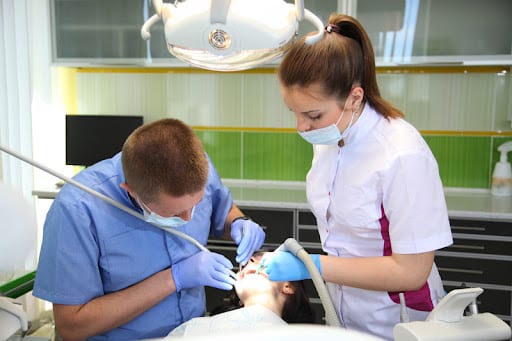Orthodontic treatment plays a crucial role in restoring oral health and enhancing the quality of life for individuals with missing teeth caused by genetic or developmental disorders. These disorders can significantly impact dental development, leading to functional and aesthetic concerns. We will explore the types of genetic or developmental disorders causing missing teeth, discuss orthodontic treatment options, and highlight the importance of a multidisciplinary approach in providing specialized care for these individuals.
Types of Genetic or Developmental Disorders Causing Missing Teeth
Genetic or developmental disorders can disrupt the normal formation and eruption of teeth, resulting in missing teeth. Some common disorders include ectodermal dysplasia, cleft lip and palate, amelogenesis imperfecta, and hypodontia. Ectodermal dysplasia affects the development of hair, nails, and sweat glands, often leading to missing teeth. Cleft lip and palate, a congenital condition, can cause gaps in the dental arch due to the incomplete fusion of the lip and palate during fetal development. Amelogenesis imperfecta affects the enamel formation, leading to weak and discolored teeth, which may be prone to wear. Hypodontia, characterized by the absence of one or more permanent teeth, can be caused by genetic factors or disruptions during tooth development.
Orthodontic Treatment Options
Orthodontists employ various treatment approaches to address missing teeth in individuals with genetic or developmental disorders. One common option is braces, which can help align the remaining teeth and close gaps, improving both functionality and aesthetics. Braces exert gentle pressure on the teeth, gradually shifting them into their proper positions. Another treatment option is the use of space maintainers, which prevent the remaining teeth from shifting and help maintain proper spacing for the eventual placement of dental implants or prosthetics. Dental implants, when suitable, provide a long-term solution by replacing missing teeth with artificial tooth roots that support crowns or bridges. Prosthodontic options, such as dentures or bridges, can also be considered depending on the specific needs of the individual.
Multidisciplinary Approach in Orthodontic Care
Providing specialized care for individuals with missing teeth due to genetic or developmental disorders requires a multidisciplinary approach. Orthodontists work collaboratively with oral surgeons, prosthodontists, and other dental specialists to develop comprehensive treatment plans. The multidisciplinary team assesses the patient’s unique situation, considering factors such as bone density, jaw development, tooth alignment, and potential preparatory procedures. Collaboration ensures that all aspects of the individual’s oral health are addressed, resulting in the most effective and personalized treatment outcomes.
Orthodontic treatment plays a vital role in providing specialized care for individuals with missing teeth caused by genetic or developmental disorders. By offering specialized orthodontic treatment, professionals can significantly enhance the quality of life for individuals with missing teeth, improving their self-esteem, speech development, and overall oral health.
Ready to schedule your free orthodontic consultation and exam with Stellar Orthodontics? Click here to get started today!




